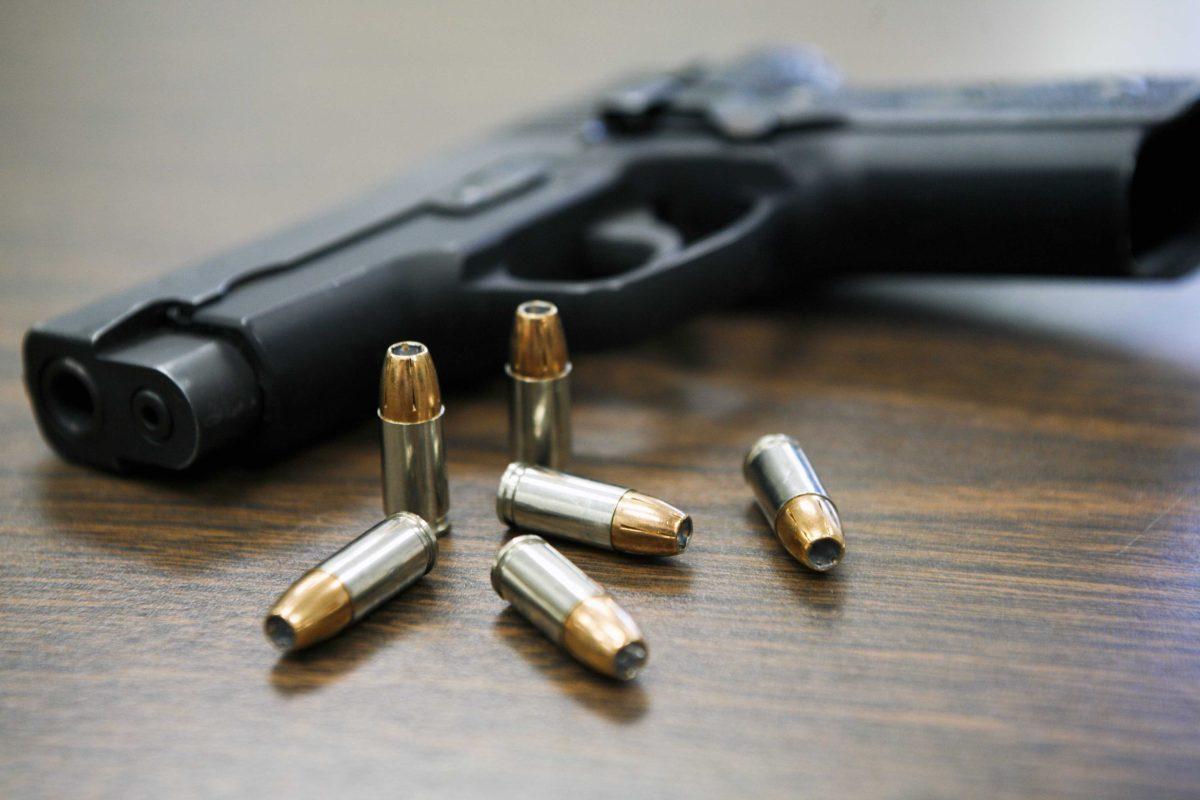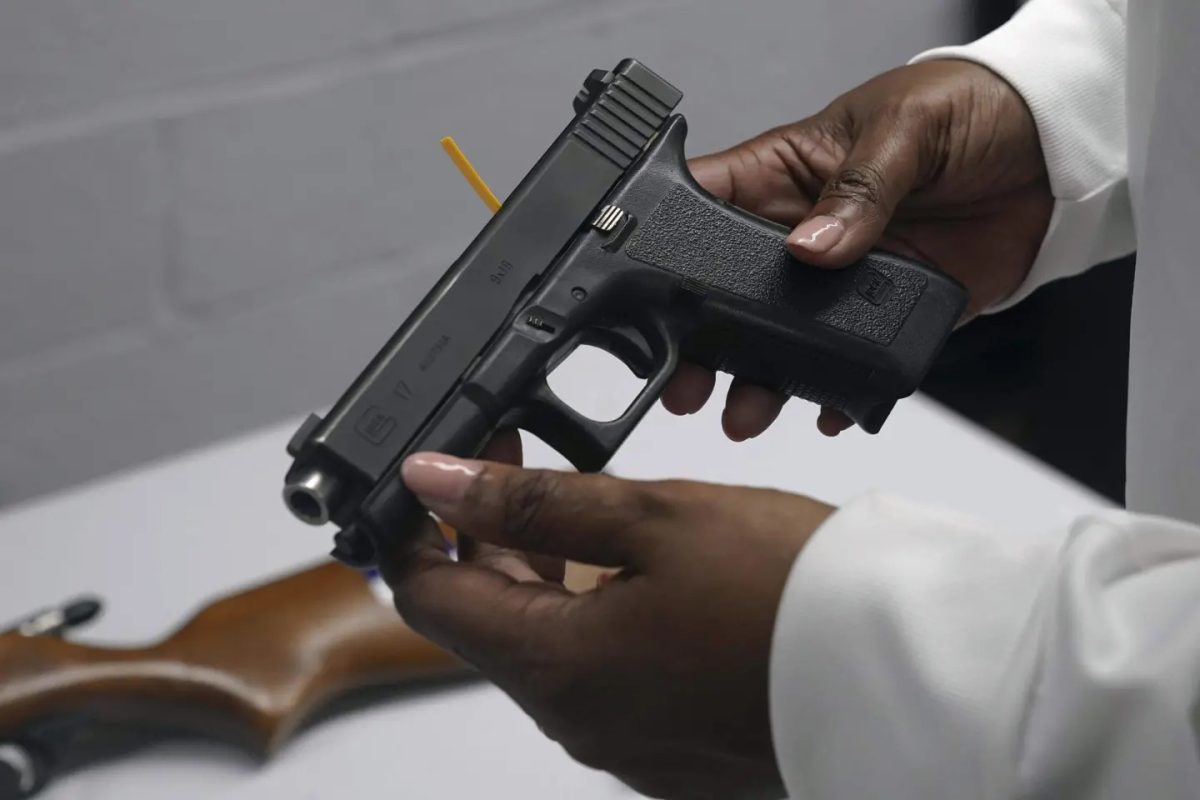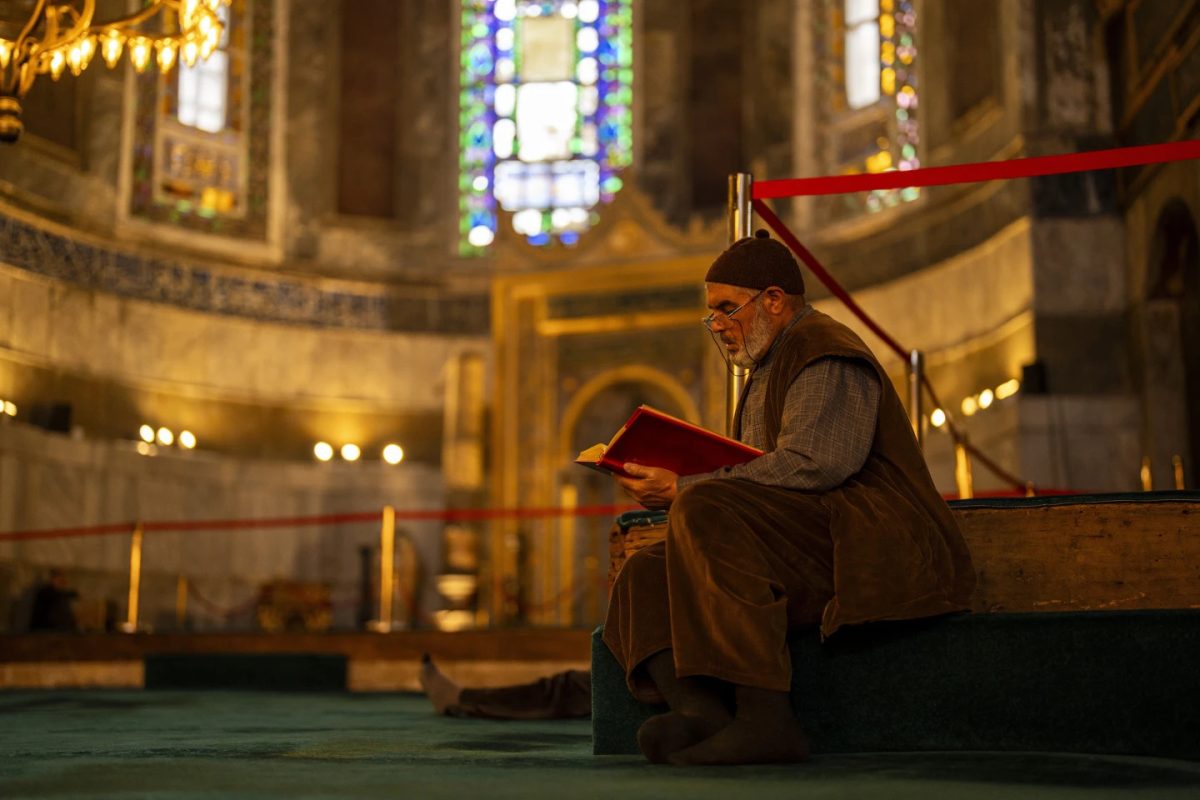My pre-University academic experience can be pretty accurately summed up with a few core memories: the unparalleled joy of the Scholastic book fair, the frantic anxiety that came with standardized testing, the excitement of planning a school dance and, of course, the horrors of lockdown drills.
I think it’s a fair argument that one of these things is not quite like the others.
But, unsurprisingly for a young person in America, I’ve been forced to come face to face with the impact of gun violence in our society.
This harsh truth became more of a reality in my seventh-grade year. Our school went into a lockdown out of reasonable suspicion of a gunman being on and around our middle school’s campus.
I remember being 12 years old and looking at my friends’ quiet faces in the dark under our desks. Nothing like this had ever happened to any of us, and I couldn’t make up my mind whether I should be telling them goodbye or not.
I decided to keep silent so as not to speak a tragedy into existence.
Luckily, our lockdown turned out to be a false alarm — but for so many children, teens and adults in this country, these situations have taken much, much darker turns.
The mass shooting epidemic in the United States has taken a significant toll on our society. Since 1966, around 1,290 people have been killed as a result of mass shootings, and thousands of others (including family members and survivors) have suffered the extreme physical, mental and emotional ramifications of these horrific events.
It’s a devastating truth that young people in this country have to become accustomed to these troubling statistics and many receive extensive training to protect themselves in a moment’s notice from a potential shooting.
I find it disgusting that, in 2021, it’s still necessary to teach elementary school students the “run, hide, fight” tactic in anticipation of potential active shooter situations.
Despite the number of casualties and traumatic experiences, it seems like there has been little-to-absolutely-no political reaction to the gun violence epidemic; the rate of mass public shootings in the U.S. is still far higher than that of other similarly developed countries.
I know at this point it seems like beating a dead horse, but we need change — desperately, and soon.
In my mind, the logical solution is to tighten up restrictions on gun purchases and ownership. But, for reasons I don’t understand, many people are opposed to this supposedly radical proposal.
A perfect example is the March 22 King Soopers grocery store shooting in Boulder, CO. The gunman, Ahmad Al Aliwi Alissa, was extensively described by family members as having mental health issues, and was found guilty of third-degree assault in 2018.
Yet he was legally cleared to purchase the Ruger AR556 pistol he would use to carry out the attack just six days later.
Ten people were left dead.
Frankly, this doesn’t add up. We’re far past the need of a more effective background check system when it comes to weapon purchases.
Guns “getting into the wrong hands” shouldn’t be such a common occurrence in this country, and I feel like increasing gun control shouldn’t be such a hot topic or touchy subject when it all comes down to saving lives and preventing absolute devastation.
It seems we’ve been repeating ourselves over and over again with no outright positive results or changes. Even still, I think more people voicing their concerns and discontent with current gun control measures will be the main source of change on this front.
Emily Davison is a 19-year-old anthropology and English sophomore from Denham Springs.
Opinion: Gun control shouldn’t be a controversial topic
April 1, 2021







